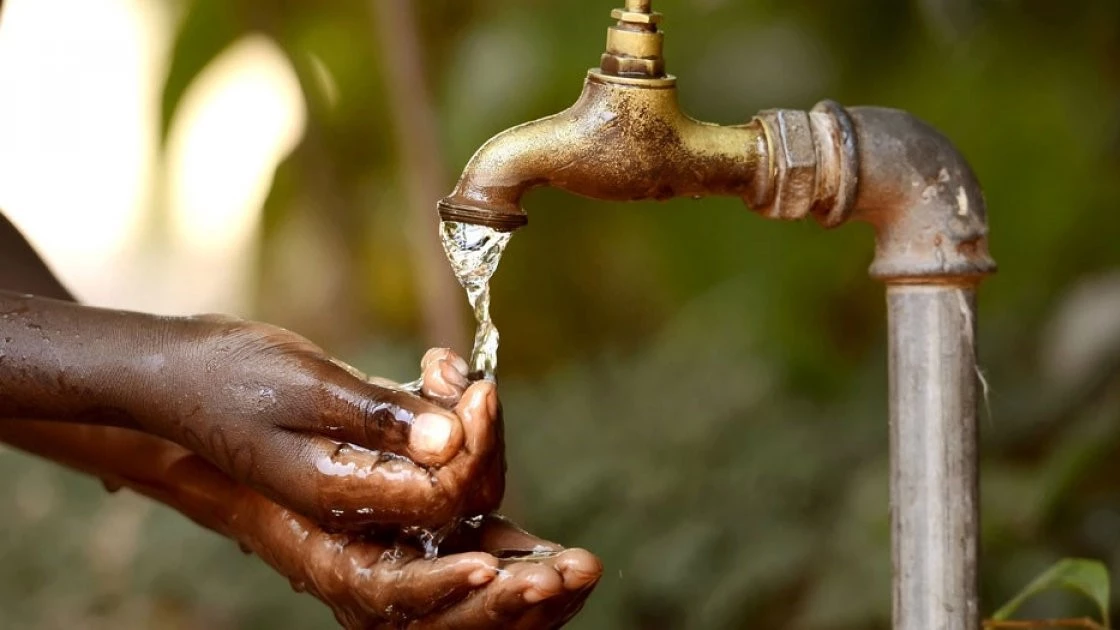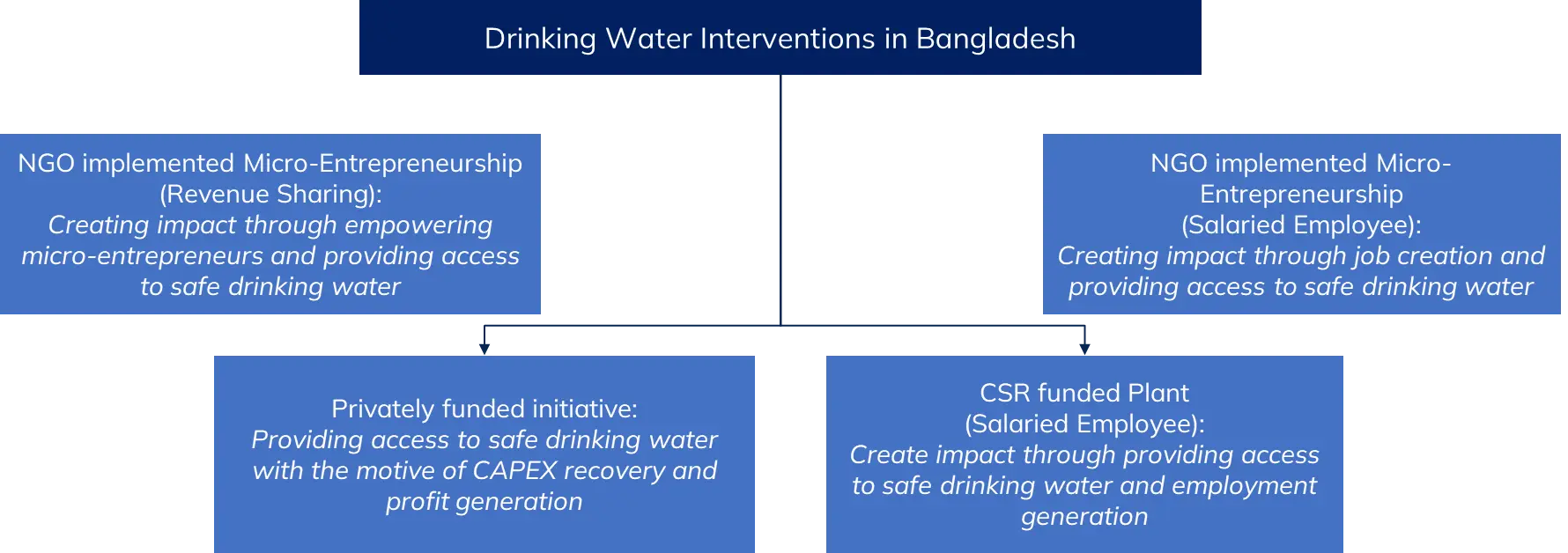GET IN TOUCH
- Please wait...

Safe water is an essential element for a healthy life. However, a large majority of the Bangladeshi population cannot access safe drinking water, which is one of the most fundamental health services. Although Bangladesh has made good progress in ensuring universal access to improved drinking water for 98.5% of its population, around 47% of the population still does not have access to safely managed water services that are free from arsenic and microbial contamination. Only 18.1% of the population has access to drinking water without any fecal contamination at the point of use.
The water supply of Bangladesh has three primary issues which expose its population to health risks. These issues are (a) high arsenic levels, (b) E. coli contamination, and (c) salinity intrusion. High arsenic levels and risk of E. coli contamination vary in the urban and rural areas with the latter having higher exposure to both.
Bangladesh is one of the countries that is worst affected by saltwater intrusion into groundwater. In 2009, the salinity-affected area stood at 10,560 square km, with approximately 20 million people being affected. Several studies identified the association between excessive salinity in drinking water with increased risk of hypertension. Drinking water salinity has also been linked to the risk of preeclampsia and gestational hypertension. In addition, there are reports on association with infant mortality, cholera outbreaks, and skin and diarrheal diseases. The increased salinity also has maternal and child health implications. Women in southwest coastal areas have a higher prevalence of gestational hypertension compared to women in other areas.
60% of the country’s land surface is exposed to frequent floods due to the country’s low topography, and its location along the Bay of Bengal renders it vulnerable to cyclonic storms. The coastal regions are lower in altitude, and as a result, the water typically available in almost all the regions goes beyond 0.75mS/cm in terms of Electrical Conductivity (EC), which is a measure of salinity level. The high level of salinity across coastal regions exacerbates the problem of safe drinking water.
Solving drinking water problems across Bangladesh requires looking into business model practices across the country. Different models have been implemented across the regions by harnessing the resources and capacity of the local demographics. Below is an overview of the types of ownership and models prevalent in Bangladesh:

LightCastle Partners conducted a two-phased study to assess the status quo of drinking water services with a particular focus on rural communities in Bangladesh and develop an operational model and implementation strategy for 1001fontaines to provide safe drinking water access to beneficiaries in underserved regions, in the southern parts of Bangladesh.

Based on the field findings and stakeholder consultations, LightCastle designed a market entry strategy and partnership model exploring collaborative opportunities that create synergies with potential national and local actors for 1001fontaines.
1001fontaines is currently exploring partnership opportunities with local and international players active in the segment in alignment with LightCastle’s suggestive model to develop and validate a scalable operational model that will enable communities in vulnerable regions to access safe drinking water and subsequently, have improved quality of life due to reduced health risks.
Our experts can help you solve your unique challenges